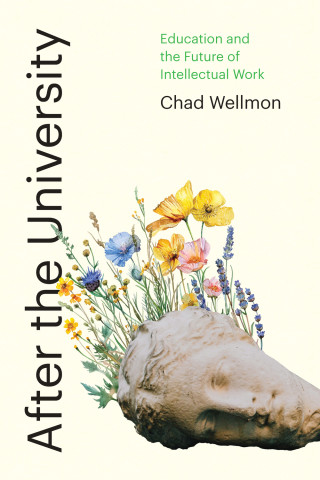
Reviews
Greene's book is fun.The point of Greene's performances and those of her students is not to present a final view of any of Shakespeare's characters, still less of his plays. Rather, it is to show what jargon-laden course outlines cannot encompass. It is to show that over the course of a semester, students who are willing to follow a trained, dedicated teacher develop finely tuned reading skills and link what they read to their lives.
[Greene's] defense of the humanities is as philosophically rigorous as it is affectingly impassioned....an important contribution to today's education debates and a sterling example of the intellectual virtues it valorizes...edifying and inspiring.
A spirited work in defense of a heartfelt humanist approach to teaching and learning....This book argues for the human touch in education....A tour de force in terms of capturing a hugely complicated process on the page.
An impassioned manifesto to revive quality, democratic education that redeems college teaching and re-seeds enlightened, disaster-averting voters.
Delightful.K-12 educators will find a great deal of common ground in Greene's book and, overall, a largely shared understanding of the goals and value of a liberal arts education, as well as a keen evaluation of contemporary problems in education more generally.
Gayle Greene's Immeasurable Outcomes: Teaching Shakespeare in the Age of the Algorithmoffers a provocation: Good teaching matters, but it can't be measured. No one has recently captured as well as Greene the experience of being a humanities professor—what we hope to do, what happens (and doesn't) during our classes, what gives us joy, and what makes us sad. The classroom is threatened by false understandings of what can and should be assessed, by online education, and by the world's distractions. It needs to be protected.
Gayle Greene gives her readers a great gift—she invites us into her seminar on Shakespeare. We become one of her lucky students, as we learn how 'to think qualitatively about human need and value.' She shows liberal education in action, a transformative form of learning with immeasurable outcomes.
Nothing I've read about the crisis comes close to this. I've read many of the sources Greene cites, but now I have a far clearer picture of the crucial issues and developments. What makes it work is the personal story, and most powerfully, the classroom saga. It is just brilliant. The chapters on the Shakespeare class are riveting, every one of them; they build toward the final one on Lear, which left me wishing for more; I felt like I was in the room. Greene establishes what teaching means, entails, delivers, actually is, or should be, better than anyone I've read. Yet simultaneously, she embeds that experiential narrative in state-of-the art scholarship, demonstrating simultaneously what the 'profession' demands. No one else has done this, as far as I know. Chapter 7 on WASC and the degradation of responsibility into accountability, etc., is definitive.
I am pleased to endorse Gayle Greene's new book Immeasurable Outcomes. She gives her readers a clear picture of what education should be and how it has been distorted by entrepreneurs, grifters, and phonies. What every parent, teacher, and student should focus on is Greene's clear understanding of what real education is. The measures we use are killing it. Dig deep and find the treasure of a great education.
I loved this book. Immeasurable Outcomes not only makes the case that a liberal arts education is 'immeasurable' in our era of student learning outcomes but also describes, better than I have ever seen it described, what actually happens in a classroom. This is a knowledgeable account from a master practitioner. The descriptions of teaching moved me to tears. Immeasurable Outcomes will provide a powerful how-to guide for teachers whose life mission is to lead humane classes that can help students transform their lives.
Turn away from click-bait headlines crowing about the demise of the academy and death of the humanities and take a seat in the classroom of a world-class liberal arts professor. With passion, erudition, and wit, Gayle Greene champions a human-scale pedagogy that inspires students to discover their own worth and sense of purpose. As Greene makes abundantly clear, the value of an educated citizenry is enduring and profound. If you are considering college, know someone who is, or if you seek to defend higher education against its numerous detractors, this book is required reading.
Gayle Greene takes us inside her Shakespeare class to give a remarkably vivid and moving account of the ways in which 'relationship rich' liberal arts teaching changes students' lives. As her students learn to understand Bottom, Kate and Petruchio, Hamlet, Lear, they grow to understand themselves and the world they inhabit more profoundly, with a lasting impact on who they become.
Brushing aside the dry abstractions of academic prose, Immeasurable Outcomes is a beautiful, full-throated revelation of what actually happens in liberal arts classrooms and colleges. By turns impassioned, insightful, angry, and delighted, professor and author Gayle Greene is entranced by the actual students she teaches, furious with the destructive stupidity of educational 'reform' (NCLB, Common Core, 'assessment') and at once despairing but hopeful of what higher education does and might mean for students and teachers alike. She pulls no punches and spares no tears in this wonderful, challenging, and inspiring book.
Gayle Greene has the mind of a brilliant scholar and the heart of a superb teacher: both are dramatically on display in this remarkable book.
In our age of numeracy, literacy is more important than ever before—not as an ornament or résumé-enhancing credential, but on account of its power to change the way we live and what we value. Gayle Greene takes us inside her classroom and helps us feel the promise of the humanities firsthand. Immeasurable Outcomes is a personal and vivid defense of the aims of liberal education.
By inviting readers into her Shakespeare classroom, Gayle Greene captures the fun of teaching and learning, while offering profound insights into the transformative power of liberal education. In the process, she makes a compelling case for reclaiming colleges and universities as catalysts for human development and society's betterment.
The value of the humanities is difficult to describe; rather, it must be experienced. Gayle Greene takes us inside a classroom and, in allowing us to sit among the students, brings the humanities to life.
Book Details
Introduction
Chapter 1. First Day
Chapter 2. Once Upon A Time In The Twentieth Century: How The Humanities Took A Great Fall
Chapter 3. What's Trust Got to Do with It?
Chapter 4. "The Reading Thing"
Introduction
Chapter 1. First Day
Chapter 2. Once Upon A Time In The Twentieth Century: How The Humanities Took A Great Fall
Chapter 3. What's Trust Got to Do with It?
Chapter 4. "The Reading Thing": Attending, Remembering, Connecting
Chapter 5. The Play's The Thing: Taming Of The Shrew, A Midsummer Night's Dream
Chapter 6. Teaching Is an Art, Not an Algorithm
Chapter 7. De-grading the Professors: Outcomes Assessment Assessed
Chapter 8. Growing Up Human: Hamlet, King Lear
Chapter 9. Ask a Graduate
Acknowledgments
Notes
Select Bibliography
Index






